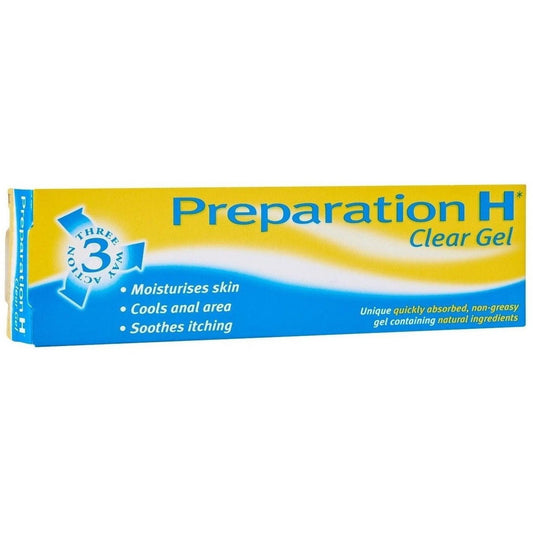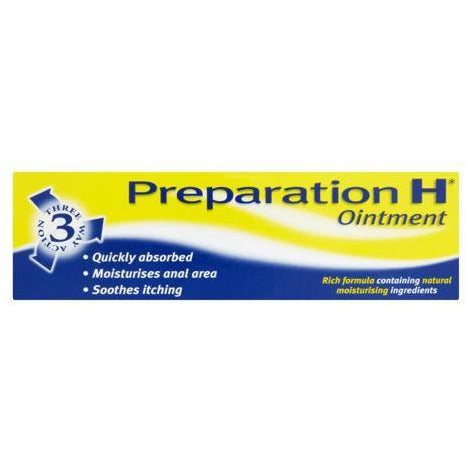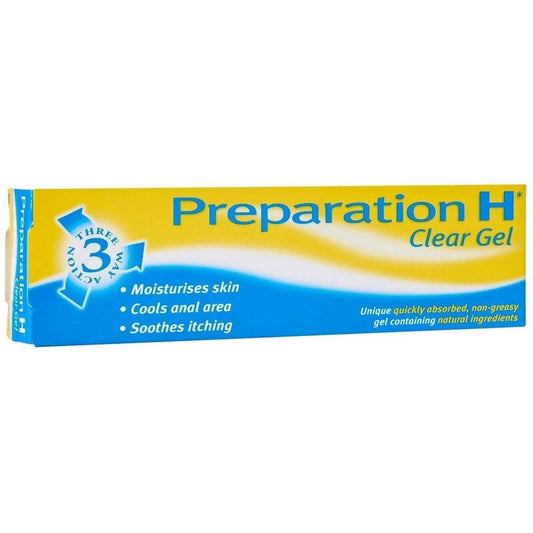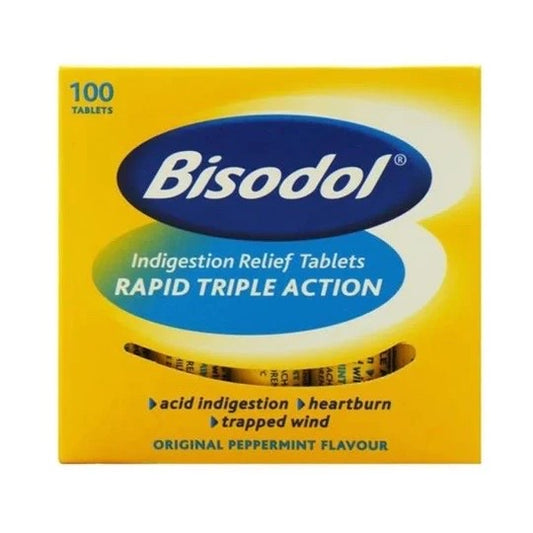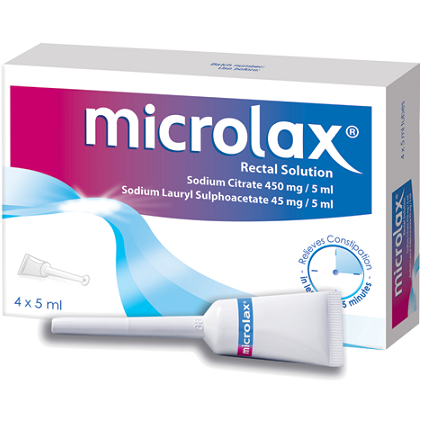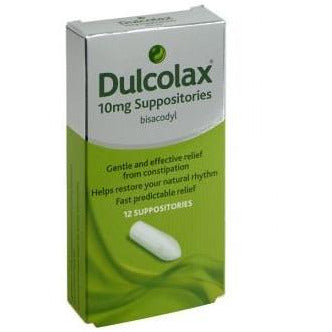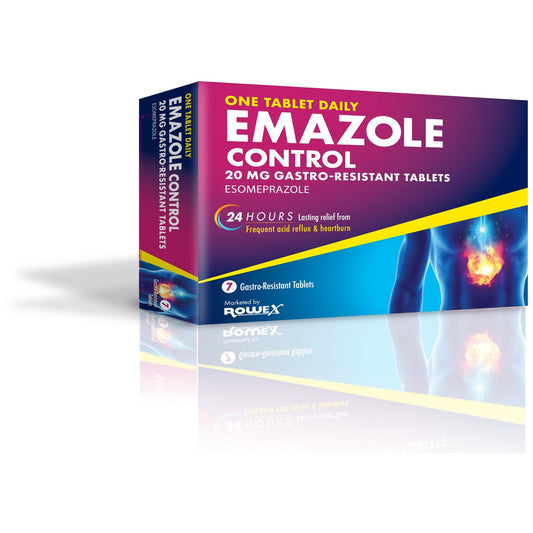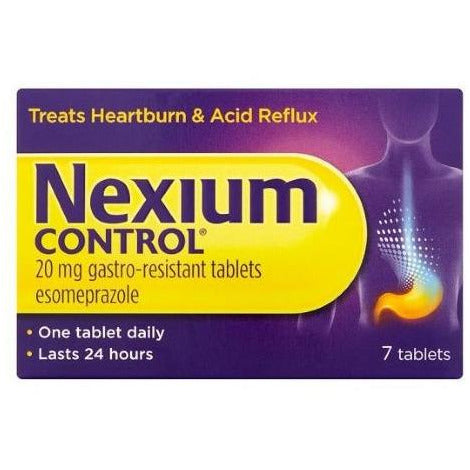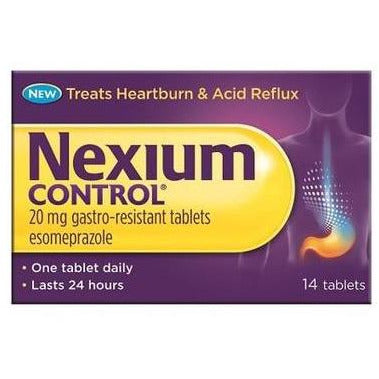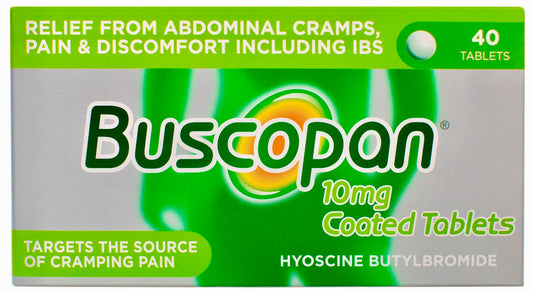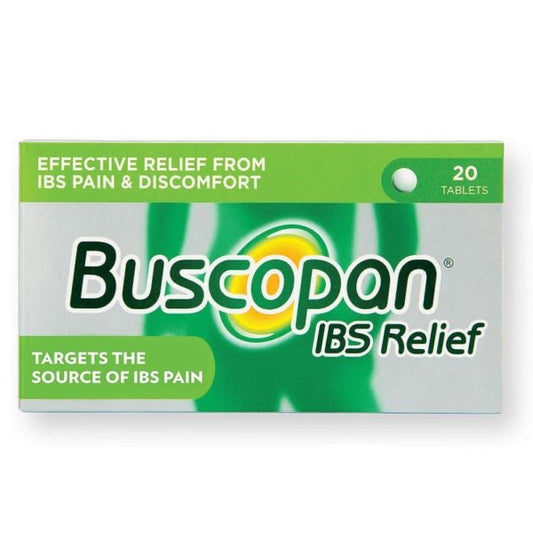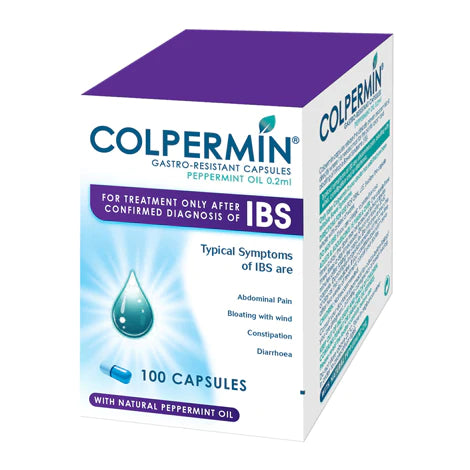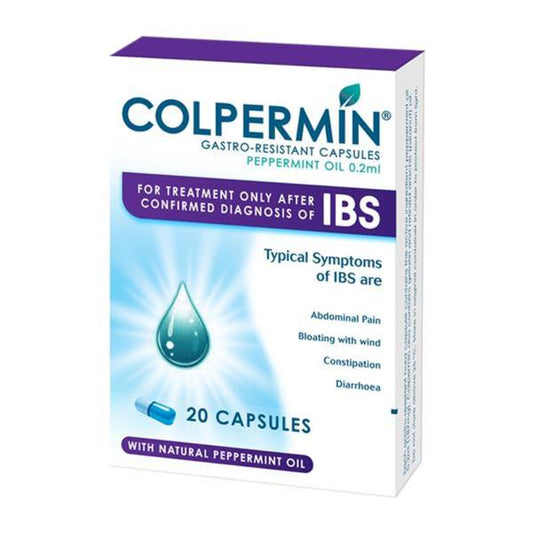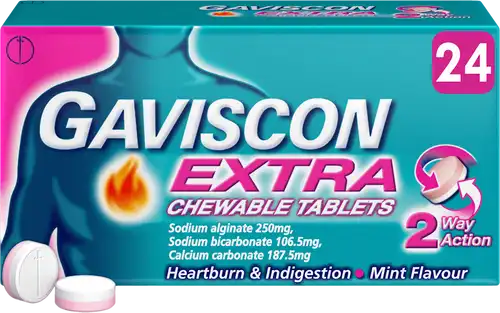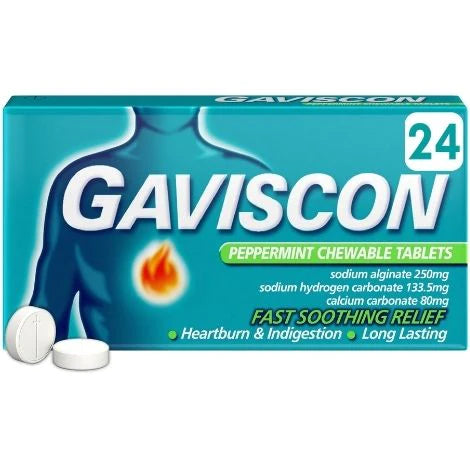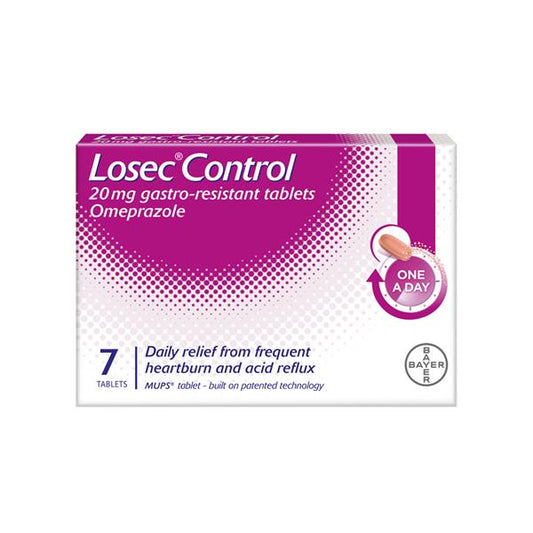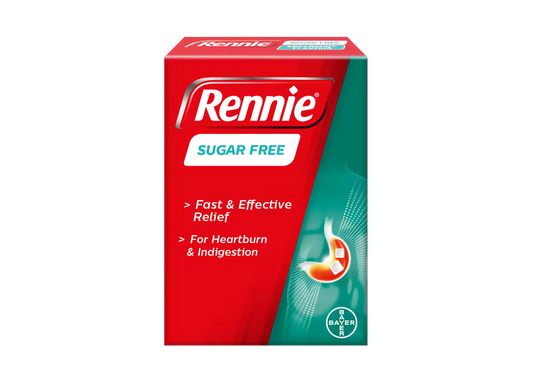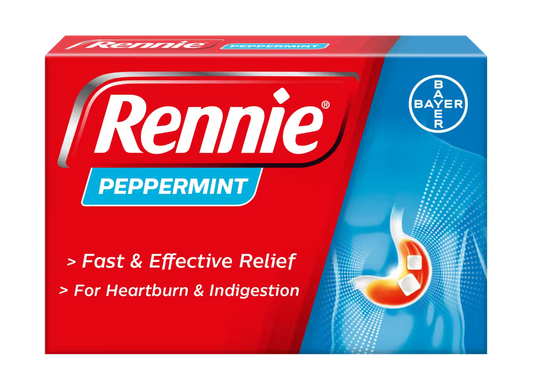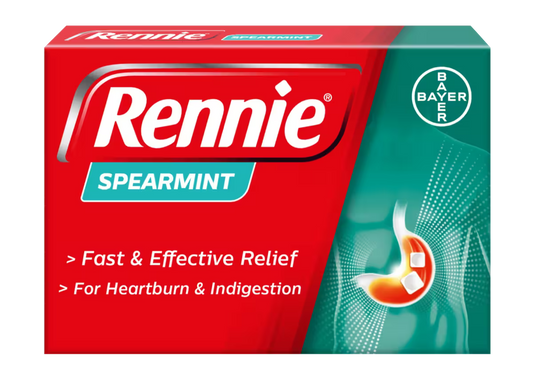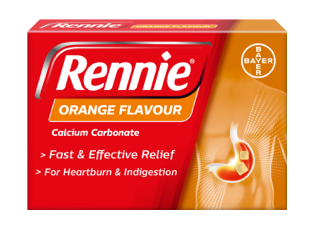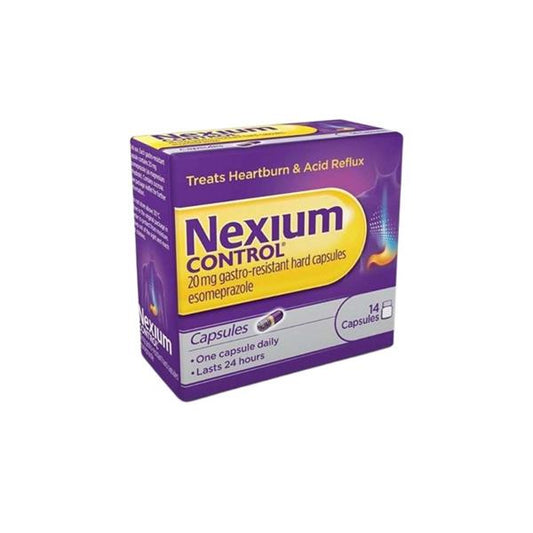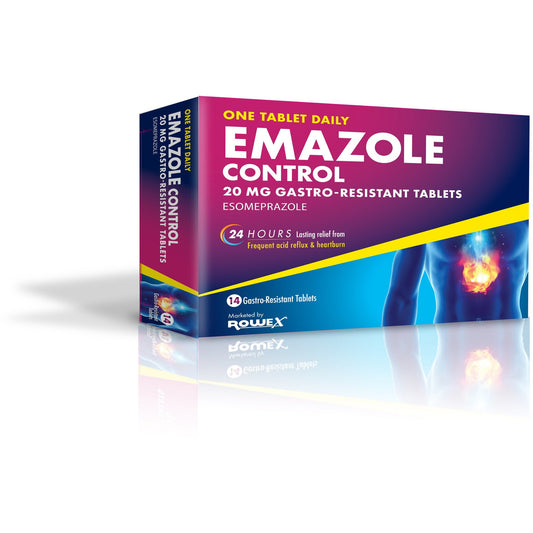Collection: Tummy Trouble
Everyone’s stomach gets a bit out of sorts from time to time. But in some cases, depending on your symptoms, you may need to see your doctor.

Gastritis
The liquid that helps you digest food has a lot of acid in it. Sometimes these digestive juices get through the protective barrier in your stomach and irritate its lining -- that's called gastritis. It can be brought on by bacteria, regular use of pain relievers like ibuprofen, too much alcohol, or stress. You can sometimes treat it with over-the-counter anti acid medicines. But see your doctor because it can lead to bleeding or stomach ulcers. These products may help. Nexium Control, Emazole Control.
Peptic Ulcer
These are open sores on the lining of your stomach or the upper part of your small intestine. The most common cause is bacteria, but again, long-term use of aspirin, ibuprofen, and other painkillers can play a role. And people who smoke or drink get these ulcers more often. They're usually treated with medicines that decrease stomach acid or antibiotics, depending on the cause. These products may help. Nexium Control, Emazole Control.
Stomach Virus
Also known as the stomach flu, this is a viral infection in your intestines. You may have watery diarrhoea, cramps, or nausea, and you might throw up. You can get it from someone who has it or contaminated food. There’s no treatment, but it usually goes away on its own. See a doctor if you have a fever, you’re throwing up, dehydrated, or you see blood in your vomit or stool.
Food Poisoning
Bacteria, viruses, and parasites in food cause this illness. You may have diarrhea, nausea, and vomiting. It happens when food isn’t handled properly. It usually gets better on its own, but see a doctor if you’re dehydrated, see blood in your vomit or stool, or you have diarrhoea that is severe or lasts for more than 3 days. Also call your doctor if you have any symptoms of food poisoning and you have other health problems or have a weak immune system.
Irritable Bowel Syndrome
This common illness affects your large intestine (also called the colon). It can cause cramping, bloating, and mucus in your stool. You may go back and forth between diarrhoea and constipation. It’s not clear why it happens, but food, stress, hormones, and infection may all play a part. A doctor or dietician may be able to help you control symptoms through changes in your diet or lifestyle, or medication.
Lactose Intolerance
Lactose is the sugar in milk and other dairy products. If you don’t have enough of an enzyme called lactase, your body can have trouble breaking it down. That can cause diarrhoea, gas, bloating, and belly ache. There’s no cure, but you can manage it if you have only a small amount of dairy in your daily diet and buy lactose-free dairy products.
Constipation
Exercise, plenty of water, and foods that have a lot of fibre, like prunes and whole grains, can help. But if you regularly pass fewer than three stools a week, have to strain to go, and your stools are usually lumpy and hard, that can be a sign of a more serious condition. See your doctor if you have any of these.
-
Preparation H Clear Gel 25g, Haemorrhoids (Piles) Treatment
Regular price €7.15 EURRegular priceUnit price / per -
Preparation H Ointment 25g, Haemorrhoids (Piles) Treatment
Regular price €7.50 EURRegular priceUnit price / per -
Preparation H Clear Gel 50g, Haemorrhoids (Piles) Treatment
Regular price €10.90 EURRegular priceUnit price / per -
BISODOL ANTACID CHEWABLE TABLETS X 100
Regular price €6.50 EURRegular priceUnit price / per -
Microlax Rectal Enemas (4), Rectal Constipation Relief
Regular price €5.55 EURRegular priceUnit price / per -
Dulcolax 10mg Rectal Suppositories (12) for Adults, Laxative for Constipation
Regular price €8.20 EURRegular priceUnit price / per -
RENNIE DEFLATINE CHEWABLE TABLETS X 18'S
Regular price €5.95 EURRegular priceUnit price / per -
Emazole Control Tablets (7)
Regular price €7.25 EURRegular priceUnit price / per -
Nexium Control 20mg Tablets (7)
Regular price €7.99 EURRegular priceUnit price / per -
Nexium Control 20mg Tablets (14)
Regular price €15.95 EURRegular priceUnit price / per -
BUSCOPAN 10MG FILM COATED TABLETS (40)
Regular price €16.10 EURRegular priceUnit price / per -
BUSCOPAN 10MG FILM COATED TABLETS (20)
Regular price €9.45 EURRegular priceUnit price / per -
COLPERMIN CAPSULES X 100
Regular price €25.00 EURRegular priceUnit price / per -
COLPERMIN CAPSULES X 20
Regular price €9.00 EURRegular priceUnit price / per -
GAVISCON EXTRA PEPPERMINT CHEWABLE TABS 48s
Regular price €14.50 EURRegular priceUnit price / per -
GAVISCON PEPPERMINT CHEWABLE TABLETS 24's
Regular price €7.00 EURRegular priceUnit price / per -
LOSEC CONTROL 20MG TABLETS X 7'S
Regular price €8.95 EURRegular priceUnit price / per -
RENNIE SUGAR FREE TABLETS X 24'S
Regular price €3.95 EURRegular priceUnit price / per -
RENNIE PEPPERMINT TABLETS X 24'S
Regular price €3.60 EURRegular priceUnit price / per -
RENNIE SPEARMINT TABLETS X 48
Regular price €6.15 EURRegular priceUnit price / per -
RENNIE ORANGE TABLETS X 48'S
Regular price €6.15 EURRegular priceUnit price / per -
Nexium Control 20mg Capsules (14)
Regular price €16.80 EURRegular priceUnit price / per -
Emazole Control Tablets (14)
Regular price €12.75 EURRegular priceUnit price / per

